Croatia Constitutional Court: Same Sex Couples Can Be Foster Parents
The Croatia Constitutional Court has decided: same-sex couples in Croatia have the right to be foster parents on the same terms as everyone else.
Croatia Court Decision Gives Same Sex Couples Foster Parent Rights
Croatian courts and other competent authorities are required to allow same-sex couples to provide foster care on the same terms as other qualified applications. The Constitutional Court decided this by evaluating as many as eight proposals and requests to review the constitutionality of the Foster Care Act and its provisions for removing same-sex persons living in formal and informal life partnerships from the circle of potential foster parent applicants.
The Constitutional Court did not repeal the challenged legal provisions, arguing that this would create a legal loophole, but stated unequivocally that the exclusion of same-sex couples from foster care was discriminatory and unconstitutional, and provided clear instructions to the courts, social welfare centers and other decision-making bodies regarding these issues and indicated they must not exclude applicants based on their life partnership status.
High Court Found That Legal Provisions ‘Silenced’ Same Sex Partners
“The Constitutional Court found that the impugned legal provisions which left out (‘silenced’) a certain social group produces general discriminatory consequences against same-sex persons living in formal and informal life partnerships, which is constitutionally unacceptable,” points out in the summary of the Constitutional Court's decision.
It is further stated that discriminatory effects cannot be eliminated or replaced by the intervention of the Constitutional Court in the existing content of the law according to Ivanka Toma/Jutarnji List on February 7, 2020.
“Namely, the Foster Care Act has a legitimate purpose - the protection of the interests and well-being of socially disadvantaged persons - and in this respect is not in conflict with the constitution. The mere repeal of the impugned legal provisions would lead to a gap in the existing model of public foster care service and would have adverse consequences for the rights and interests of foster care users. Therefore, the Constitutional Court did not accept the proposals and the request for review of conformity with the constitution of the disputed articles of the Foster Care Act,” their decision reads.
Constitutional judges stressed that, despite not intervening in the legal text, "courts or other competent bodies that directly decide on individual rights and obligations of citizens in resolving individual cases are obliged to interpret and apply laws in accordance with their meaning and legitimate purpose, to make those decisions on the basis of the constitution, laws, international treaties and other sources of law."
“In the present case, this means that the impugned legal provisions are obliged to interpret and apply in a way that will enable all persons under equal conditions to participate in public foster care service, regardless of whether the potential foster parent lives in an informal or formal life partnership,” according to the Constitutional Court's unambiguous message.
Constitutional Court President Miroslav Šeparović says the Kožić-Šegota case, in which the Administrative Court gave them the right to be foster parents, and the Social Welfare Center’s refusal to enforce the court's decision had had no bearing on their decision.
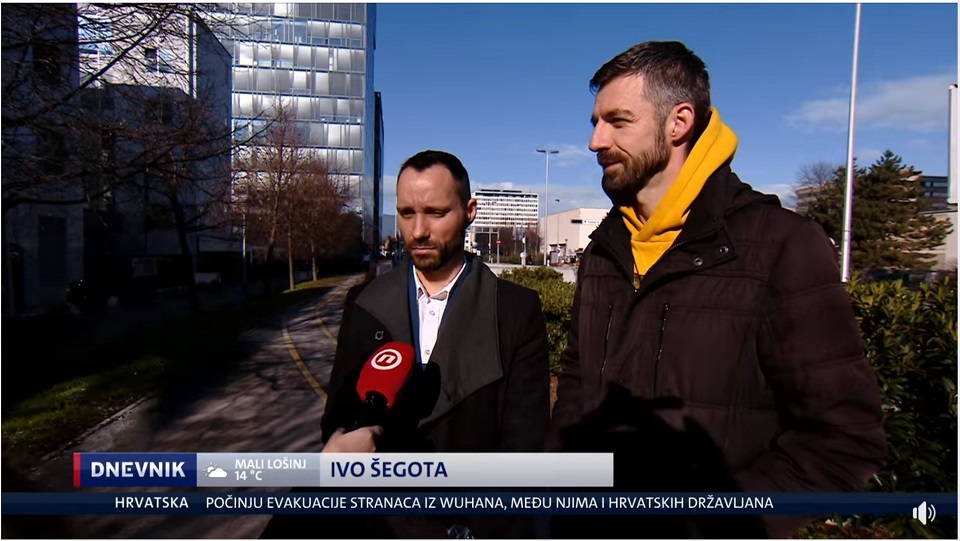
Gay Life Partners Ivo Šegota and Mladen Kožić in January after second foster care rejection. | Nova TV
Administrative Court Decision Did Not Influence Constitutional Court Decision
“The Constitutional Court has been reviewing this law for several months and the decision of the Administrative Court in no way influenced the decision of the Constitutional Court. But we have indicated that courts and administrative bodies are obliged to act in accordance with the Constitution and international regulations and must interpret laws so that no social group is discriminated against,” added Šeparović.
Regarding the Kožić-Šegota case, he pointed out that the Social Welfare Center should have acted on the decision of the Administrative Court which allowed the couple to be foster parents without this Constitutional Court decision. However, the Constitutional Court decision further obligates them to honor the lower court’s decision, and notes that this same-sex couple must not be discriminated against and that they can be foster parents on the same terms as anyone else who meets the legal requirements.
Ivo Šegota and Mladen Kožić, who are gay life partners, applied to the Social Welfare Center to become foster parents three years ago. After rejecting their application, the center explained that the couple cannot foster children because the law does not allow them to do so as life partners. Last December, the Administrative Court handed down a historic verdict which stated that life partners could be foster parents. However, their request was rejected again by the Social Welfare Center in January.
The President of the Constitutional Court recalls that, under the Constitutional Act of the Constitutional Court, Constitutional decisions must be enforced, and the government is obliged to ensure compliance.
“The point of this decision is that opportunity to provide foster care service must be given to everyone under the same conditions, regardless of whether the potential foster parents are of same-sex orientation. This does not mean that they are privileged, but their foster care must be allowed if they meet the legal requirements,” explained Šeparović.
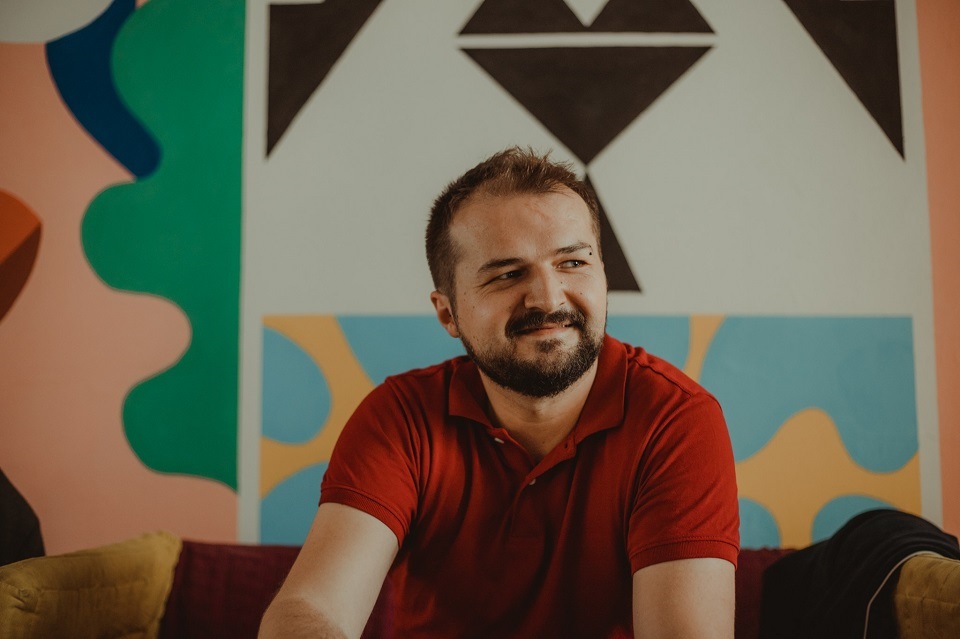
Daniel Martinović | Coordinator for Dugine obitelji (Rainbow Families)
Dugine Obitelji (Rainbow Families) Official Statement
Daniel Martinović, Coordinator at Dugine obitelji (Rainbow Families), released the following statement:
“Today's Constitutional Court decision states that the Foster Care Act must be interpreted to include life partners as equals as other foster parents, and that this is the only correct interpretation of the act.”
“The decision recognizes and prevents discrimination against life partners in the future and does what politicians in Croatia have not accomplished for years. This is a positive leap forward for the equality for all citizens of the Republic of Croatia, regardless of their sexual orientation or gender identity.”
“The LGBT community has once again fought for its rights alone, persistently and together. Our courage and insistence on a fairer society can hopefully be a milestone for other marginalized groups in our society.”
Croatia Constitutional Court Decision Ends Three Year Court Battle
Information on the December 2019 court decision can be found here. Details about the Social Welfare Center’s January 2020 rejection of the couple’s second foster care application can be found here.
A history of the couple's efforts to become foster parents and information on the LGBT rights movement in Croatia can be found here.
To learn more about the efforts of Rainbow Families (Dugine obitelji), check out their website and Facebook page.
The Croatia Constitutional Court decision (in Croatian):
Odluka Ustavnog suda o udom... by Index.hr on Scribd
Croatia Gay Couple Foster Care Applicants: Country Full of Hypocrisy
A Croatia gay couple, who want to become foster parents, have a message for haters: “We are a country full of hypocrisy,” they point out in yesterday's interview with RTL Direkt. Ivo Šegota and Mladen Kožić, who are in a life partnership, applied to become foster parents in 2017. After passing extensive background checks, screening tests and obtaining their foster care certification, their application was rejected by the Social Welfare Center in Zagreb.
In December 2019, the Croatian Administrative Court handed down a decision which ordered the center to consider the couple’s foster parent application based on its merit only. However, the center refused to comply with the court’s decision and rejected their application again. Tatjana Brozić Perić, director of the Zagreb Social Welfare Center, now faces charges for refusing to implement the Administrative Court decision. Her conduct has also been condemned by members of the Croatian parliament.
Ivo Šegota and Mladen Kožić applied to the Social Welfare Center to become foster parents three years ago. After rejecting their application, the center explained that the couple cannot foster children because the law does not allow them to do so as life partners. Last December, the Administrative Court handed down a historic verdict which stated that life partners could be foster parents. However, their request was rejected again by the Social Welfare Center in January.
Croatia Law: Gay Couple Could Be Foster Parents, But Not as Life Partners
Ivo Šegota and Mladen Kožić, life partners who hope to become the first Croatian gay foster parents, were guests of Mojmira Pastorčić/RTL Direkt on January 28, 2020. The craziest thing of all is that if they were single instead of life partners, they could have easily fostered a child.
"That is the biggest paradox. If I had applied alone, I would not be questioned and would be welcomed at the center, I am at an ideal age, live in an urban environment, am highly educated and financially comfortable. In other words, I am in an ideal category for foster care applicants," Ivo noted.
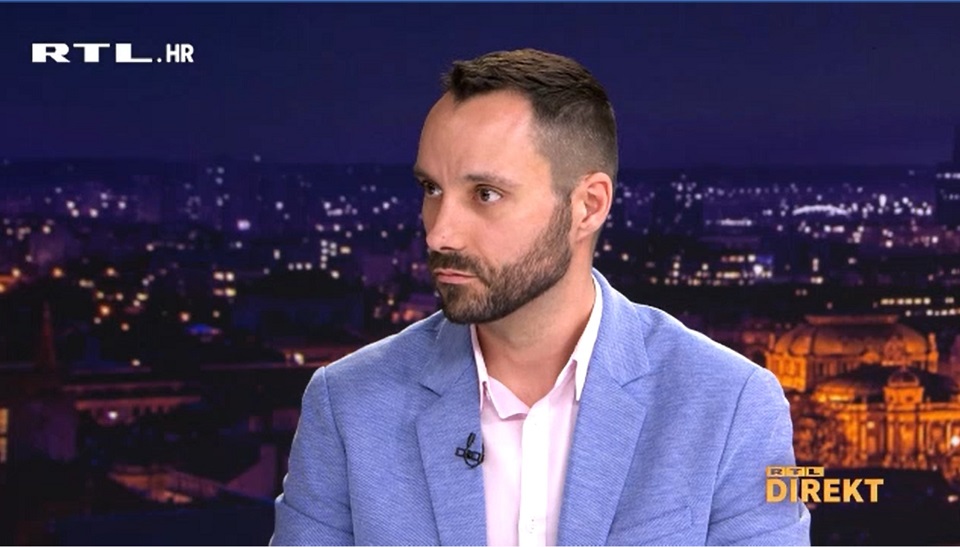
Ivo Šegota | RTL Direkt
At Christmas they were given a "gift" by the Administrative Court, but the couple began celebrating too soon.
Director Zagreb Social Welfare Center Won’t Implement Court Decision
A few days ago, a decision was made by the Social Welfare Center, in which the director, Brozić Perić, stated that she would refuse to acknowledge the court decision because she did not want to implement it. Both Mladen and Ivo will submit a complaint to the Ministry of Demography, and they are confident that it won't repeat the center’s absurd behavior and will hand down a valid legal decision.
"We have been waiting for a long time and hope that as soon as we file our complaint, the Ministry (of Demography) will react promptly in accordance with the laws and the decision of the Administrative Court," Ivo says.
They would be the first gay couple to foster a child, but there are already several same-sex couples who have children in Croatia.
Croatia Same Sex Couples with Children Doing Well
"We don't have official statistics, but we hang out with a lot of these families. Some have children who are already grown up, but recently we've had a little 'baby boom'. Such families have had much more positive experiences than one might expect. There are families from every part of Croatia, and everything is working out very well for them. Professionals, who deal with these children in kindergartens and schools, and neighbors, generally view everyone as human beings first. Especially when it comes to a child, few are willing to act to the detriment of a child," Mladen said.
Croatia Public Reactions Overwhelmingly Positive
By all accounts, they have taken on a difficult role. "When this all began, it was not our intention to make public appearances, but immediately we realized that the saying 'When, if not now and who, if not me' could easily apply to us as well. The narrative in Croatia will not go forward unless we make public appearances and fight for our rights because our institutions have been silent or have rejected us," Ivo revealed.
The reactions they receive are mostly positive, which is surprising. People approach them throughout the day, and they also have the support of family, employers and even strangers. The pair are convinced that it is time for same-sex couples in Croatia to be allowed to adopt children.
Croatia In Company with Moldova Regarding Same Sex Foster Parenting
"Croatia is currently in company with Belarus and Moldova on this issue. The question is whether we want to be in company with them or with Spain, Austria, Germany, Great Britain. We are currently heading the EU Presidency and are proud that we are the heart of Europe. So why don't we assume a European stance regarding this issue as well? I am somewhat convinced that we are ready. There has been a huge shift toward positive comments in just one year, which is why we are glad that we have decided to make our efforts public," said Mladen.
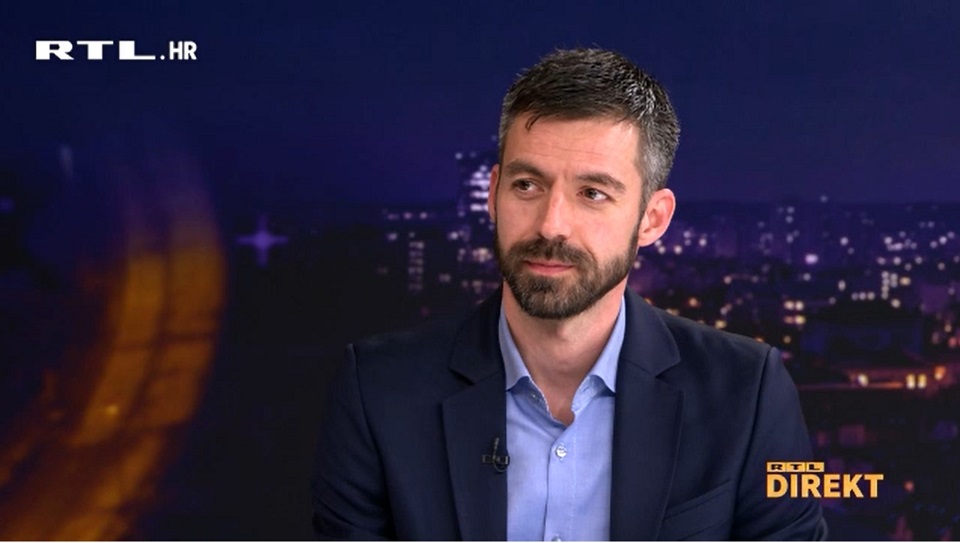
Mladen Kožić | RTL Direkt
Some are saying that it is not necessary to experiment, but Ivo has a counterproposal for them.
Over 1000 Children in Croatian Orphanages: Shortage of Foster Parents
"We are talking about a thousand or more children who are spending their childhood in orphanages. Let’s see our opponents foster two or three children, which is as many children as we would like to foster, and we could solve all our problems in Croatia. There would not be any children left for us to foster, and everyone would be happy, except for the two of us, perhaps. "We are a country full of hypocrisy, and we don't see those who voice the loudest opposition coming down to the (Social Welfare) Center (to become foster parents). And we have a chronic shortage of foster parents in Croatia," Ivo concluded.
Mojmira Pastorčić with Mladen Kožić and Ivo Šegota | RTL Direkt
Interview with Mladen Kožić | HRT
Information on the December 2019 court decision can be found here. Details about the Social Welfare Center’s rejection of the couple’s second foster care application can be found here.
A history of the couple's efforts to become foster parents and information on the LGBT rights movement in Croatia can be found here.
To learn more about the efforts of Rainbow Families (Dugine obitelji), check out their website and Facebook page.
Croatia Gay Couple Foster Care Application Rejected: Court Decision Ignored
The Social Welfare Center in Zagreb again rejected the foster care application submitted by Ivo Šegota and Mladen Kožić, who are life partners in Croatia. By doing so, they have completely disregarded the Croatian Administrative Court's December 2019 binding judgment, which allowed the couple to become foster parents after a long two-year court battle.
UPDATE: Mladen Kožić and Ivo Šegota give interviews to RTL Direkt and HRT on January 28, 2020. More information here.
Couple Had Started Preparing Home for Children
“We're shocked. After the December verdict, we had started planning how we would prepare our home for children, and I had already announced to my boss that, as soon as children arrived, I would be taking a long-term unpaid leave. And then a decision from the center arrives stating that they will not respect the court's decision. For the first half hour I kept saying, "But how is this possible?" And then I reminded myself that this is another small obstacle that Ivo and I will have to overcome together. We’ll go forward patiently and continue learning and developing our parenting skills. Giving up is not an option,” said Mladen Kožić. He added that he will appeal this unexpected decision, which came with an even more unexpected explanation, with his partner. In fact, the decision literally states that "this body could not arrive at a decision that is based on the application of legal provisions but is based on the opinion of the court."
Šegota and Kožić applied to the center in 2017 with to become foster parents. The center began the procedure, the partners passed the required screening tests and received a positive assessment, which was followed by compulsory education for foster parents and obtained their license. But instead, the center suddenly informed them that "there are no legal prerequisites for initiating the licensing process because they are in a life partnership," and life partners are not expressly listed in the Foster Care Act as possible foster parents. However, singles, spouses and extra-marital partners are listed, as reported by Kristina Turčin/Jutarnji List on January 28, 2020. They couple submitted a complaint to the ministry, which confirmed the center’s decision, and then they initiated an administrative procedure.
Croatia Court December Decision: Couple Can Become Foster Parents
At the end of December, the Croatia Administrative Court issued a judgment that could no longer be appealed, annulling the earlier rulings, and returns the case to retrial. However, the judgment was more than clear. Total Croatia News reported this court decision on December 20, 2019.
“By a meaningful interpretation of the legal provisions in their interconnectedness, the foster family, in the court's view, may include the foster parent and his or her life partner. The legislator did not prescribe a specific sexual orientation anywhere, so it is not logical that a single person having the same sexual orientation as the plaintiffs would be issued a foster care license if he/she fulfills the legal requirements. In this case, the legal requirements (for providing foster care) were not even examined in case of the plaintiffs because of the belief that life partners cannot be foster parents,” the Croatia court ruling read.
“As the respondent deems that the defendant applied an exclusively formalistic or grammatical interpretation of the relevant provisions of the foster care law, without interconnecting them and interpreting them in accordance with their meaning and purpose; the first instance body (Social Welfare Center) will reopen the foster care application process and decide to grant permission solely on the merits of the plaintiff's request,” the judgment ordered.
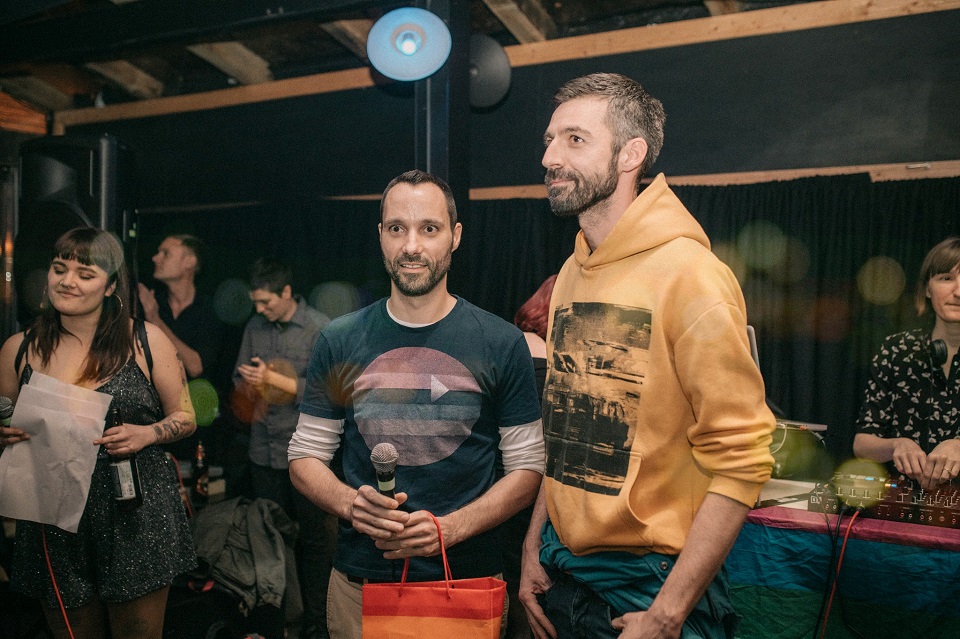
Ivo Šegota and Mladen Kožić | Facebook
Zagreb Social Welfare Center Denies Couple’s Application Again
However, the center issued the same decision as if there hadn’t been any judgments at all. Jutarnji List has not received an answer regarding the center’s decision because "CZSS (Social Welfare Center) Zagreb cannot provide details on proceedings in order to maintain official and professional secrets, respect the principles of secrecy, protect personal data and out of respect for privacy." The Ministry of Demography, Family, Youth and Social Policy would not comment and were surprised by Jutarnji List’s inquiry.
“Not only can we not comment on the decision of the center, but we are not aware of the fact that a new decision was made,” the ministry stated yesterday.
Zagreb Couple Must Appeal Decision Second Time
Šegota and Kožić must now go through the same procedure again, and an appeal of the center’s decision will be sent to the Croatia Ministry of Demography again.
“That's our next step. If the appeal is not upheld, we will return to the Administrative Court and ask that the court decide on its own and not return the proceedings to the beginning. These decisions by lower administrative bodies, which do not comply with binding judicial decisions, do not contribute to the rule of law. On the contrary, they insult the fundamental value of the constitutional order,” says lawyer Sanja Bezbradica Jelavić, who represents Šegota and Kožić.
“State institutions should adhere to court decisions,” says Gender Equality Ombudsperson Višnja Ljubičić.
Đuro Sessa: 'The decision of the center is not illegal, but it must have strong reasoning.'
The Zagreb Social Welfare Center may, in principle, issue the same decision that was reached previously since the court annulled that previous decision and sent the entire proceeding for reconsideration, explains Djuro Sessa, the Chief Justice of the Croatia Supreme Court.
“The court ruled that the case was going back for retrial. The court had the opportunity to resolve the issue on its own; not to seek a retrial but to replace the decision of the Social Welfare Center with its decision instead. The court could have decided to accept that the plaintiff's request, but they did not do so. Therefore, the center could arrive at the same decision, but the rationale for the decision should have been far more thorough,” Sessa adds.
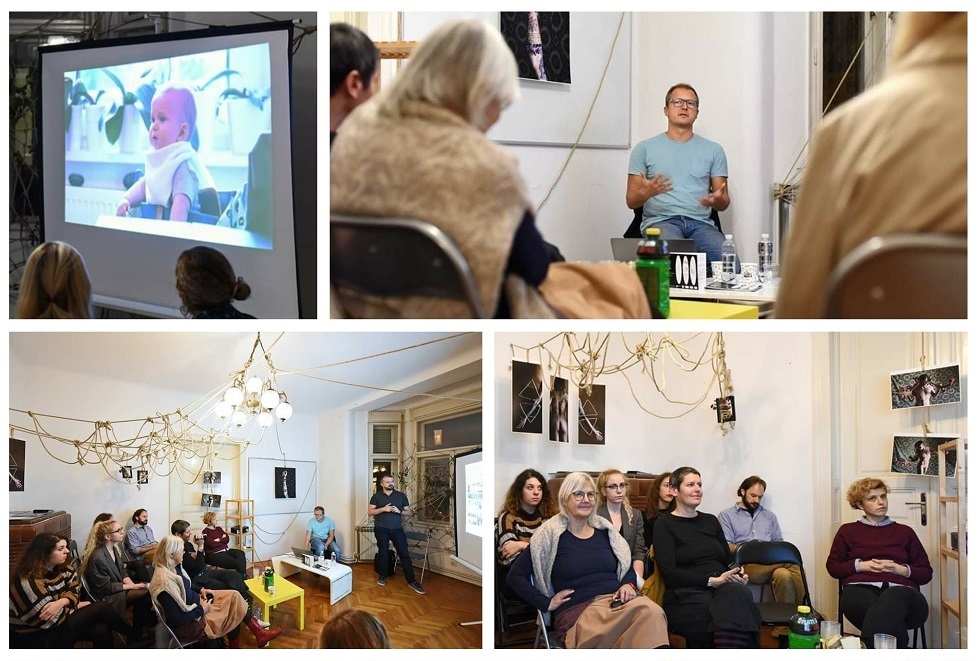
Rainbow Families | Facebook
Croatia Based 'Rainbow Families' Releases Statement
Rainbow Families (Dugine obitelji), which brings together LGBTI parents and those who wish to become parents in Croatia, released a statement today. It is printed below in full.
“It is unacceptable that the rule of law does not function in Croatia, which currently holds the EU Presidency and that court judgments are not respected.”
“The Administrative Court ruled in December 2019 that Ivo Šegota and Mladen Kožić, life partners who wish to become foster parents, have full rights in their intent. The ruling also indicated that they must not be discriminated against in these proceedings. The Social Welfare Center in Zagreb disregarded the court judgment and again rejected the foster application submitted by Mladen and Ivo. Rainbow Families, which brings together LGBTI parents and those who wish to become parents, consider the center’s actions outrageous. The center is acting as if the Administrative Court's judgment does not exist.”
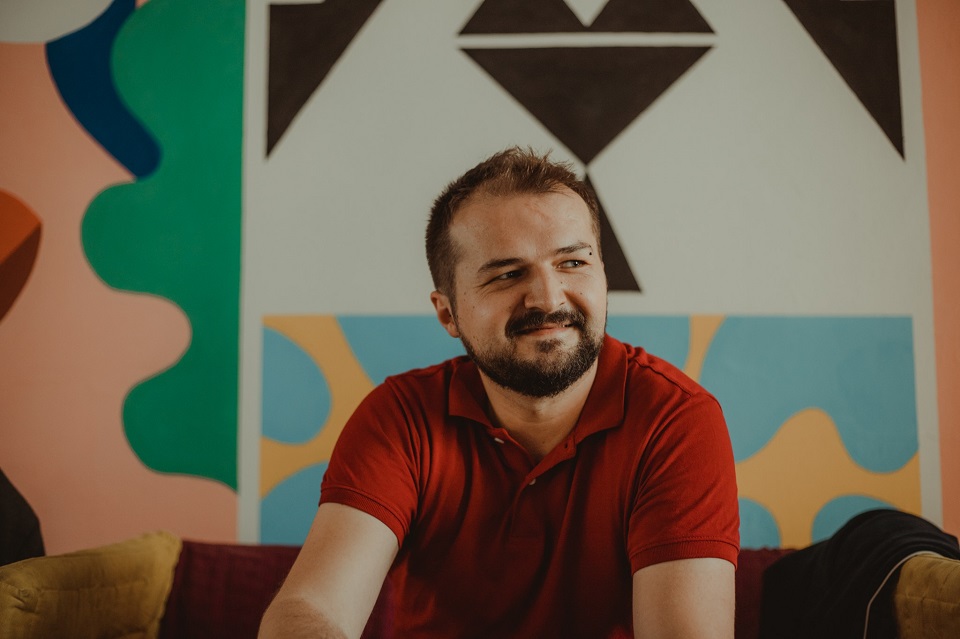
Daniel Martinović | Rainbow Families
“’This situation was already unbelievable, and it would be ridiculous if it weren’t so sad. The December 2019 decision of Administrative Court gave all of us, who believe in equality and respect for human rights, hope that there is a better future for our society. Since then, we have received an incredible number of messages of support regarding the December court verdict confirming our members, Ivo and Mladen, have the right to become foster parents. People have been stopping them on the road and congratulating them. And now we must witness this reckless, unthinkable, and more importantly, illegal conduct of the Social Welfare Center. What would the Social Welfare Center look like if it ignored the court's decision, for example, and allowed an abusive parent access or information about a child?’” Daniel Martinović, coordinator of Rainbow Families, pointed out.
"Our politicians are constantly heaping praise on our country simply because it currently holds the Presidency of the Council of the European Union. We are also told repeatedly about what a great honor it is for all of us, how proud we can all be of Croatia, how it is proof that we stand side by side with other EU countries. It hasn’t not even been a month since that famous presidency began, and we already have countless examples of where that all falls into the water. We consider this the worst example so far because it shows that institutions in this country do not respect the rule of law or court judgments, which is unthinkable in countries like Germany, Belgium or France."
"Life partners Ivo and Mladen will appeal to the Croatia Ministry of Demography regarding the center’s decision. If the ministry does not accept that appeal, they will go back to the Administrative Court and ask the court to make its own decision. Judging by the first ruling of the Administrative Court, they are fully entitled to become potential foster parents, and legal experts are already warning of the problematic situation the center's decision (last week) will create."
"Basically, in the first decision, the center rejected Mladen and Ivo’s application. However, they did not correctly apply the legal provisions of the Republic of Croatia, and when they were corrected by the relevant court, which rendered a binding decision, they interpreted the court's judgment as 'an opinion' which is not binding, and thus refused to correct their own misinterpretation of the law."
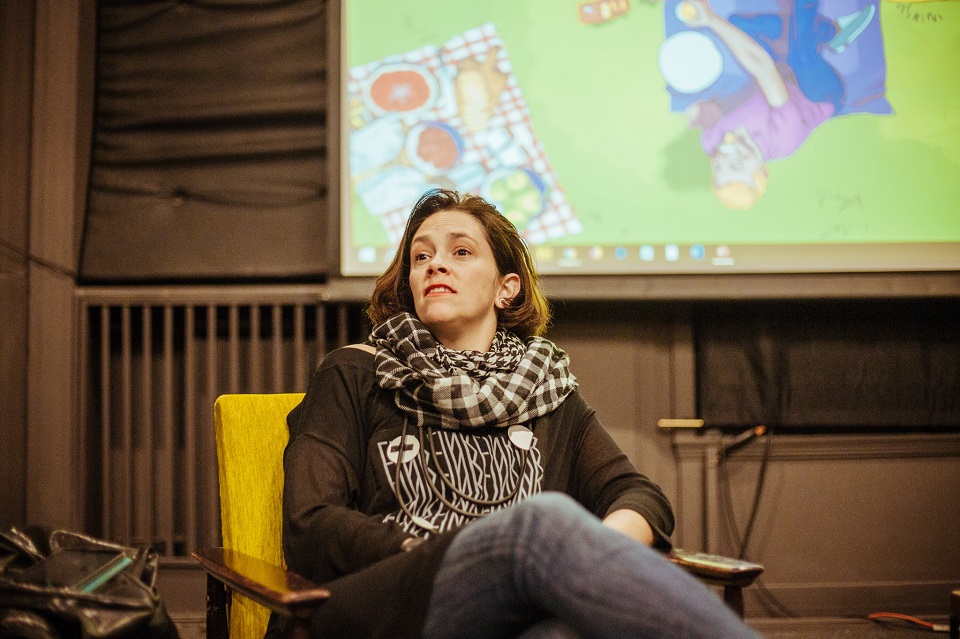
Zrinka Bojanić | Rainbow Families
"'The center’s disregard for the ruling of the Administrative Court causes great legal uncertainty and is harmful LGBTI citizens who are protected by several Croatian laws and European case laws. The judgment clearly instructed the center to decide on the merits of the plaintiffs' request, but they rejected that request, which is contrary to the judgment. They have demonstrated that they do not want to act on the couple’s request to become foster parents, which they submitted back in 2017. If this case is brought before the European Court of Human Rights, there is a very good chance that Croatia will again be forced to respect all its citizens equally and grant them equal rights on equal terms,'" explained attorney Zrinka Bojanić, an associate of Rainbow Families.
Mladen Kožić and Ivo Šegota | Press Conference | December 21, 2019
A history of the couple's efforts to become foster parents and information on the LGBT rights movement in Croatia can be found here.
UPDATE: Mladen Kožić and Ivo Šegota give interviews to RTL Direkt and HRT on January 28, 2020. More information here.
Croatia Court Decision: Gay Couple Allowed to be Foster Parents
For the very first time in Croatia, a Zagreb court rules that same-sex married couple Ivo Šegota and Mladen Kožić have the right to be foster parents, and the Ministry of Demography, which rejected their request to provide foster care last year, must implement the new decision within 60 days, this time in accordance with domestic and international legislation.
It stems from yesterday’s decision by the Zagreb Administrative Court, which annulled previous decisions including the refusals of the Center for Social Welfare and the ministry, according to Kristina Turčin/Jutarnji List on December 19, 2019.
Croatia Court Decision Final: No Appeal Allowed
“The court's decision is binding, and an appeal is not allowed, so this judgment is final. The written ruling has not yet arrived, but as stated during the announcement, the court accepted our argument in the lawsuit, based on Croatian regulations and the European Convention on Human Rights. As a result, the court ordered the relevant government agencies to implement the new decision in accordance with the judgment. We believe that the agencies will respect the court decision,” stated Sanja Bezbradica Jelavić, the attorney representing Ivo Šegota and Mladen Kožić.
“We are overjoyed. As we told the judge, this is the Christmas gift we didn't dare hope for,” Šegota revealed.
In 2015, he and his partner Mladen Kožić were among the first couples to enter a life partnership after the Life Partnership Act was passed in Croatia. Their desire to grow their family and raise children has existed for a long time.
Request to Adopt Rejected: Court Case Pending
“We have wanted to be parents for a long time. Therefore, shortly after our partnership ceremony, we submitted a request to the Center for Social Welfare to become adoptive parents, but were rejected immediately, which is why we have also initiated a lawsuit in the Zagreb Administrative Court, which is still pending,” according to Šegota.
They were not discouraged and started considering other options, such as foster care.
“We gave it a lot of thought. We are aware that this is temporary, rather than permanent childcare, and that foster parents are not adoptive parents, but we have concluded that this option is still a dream come true,” he continues.
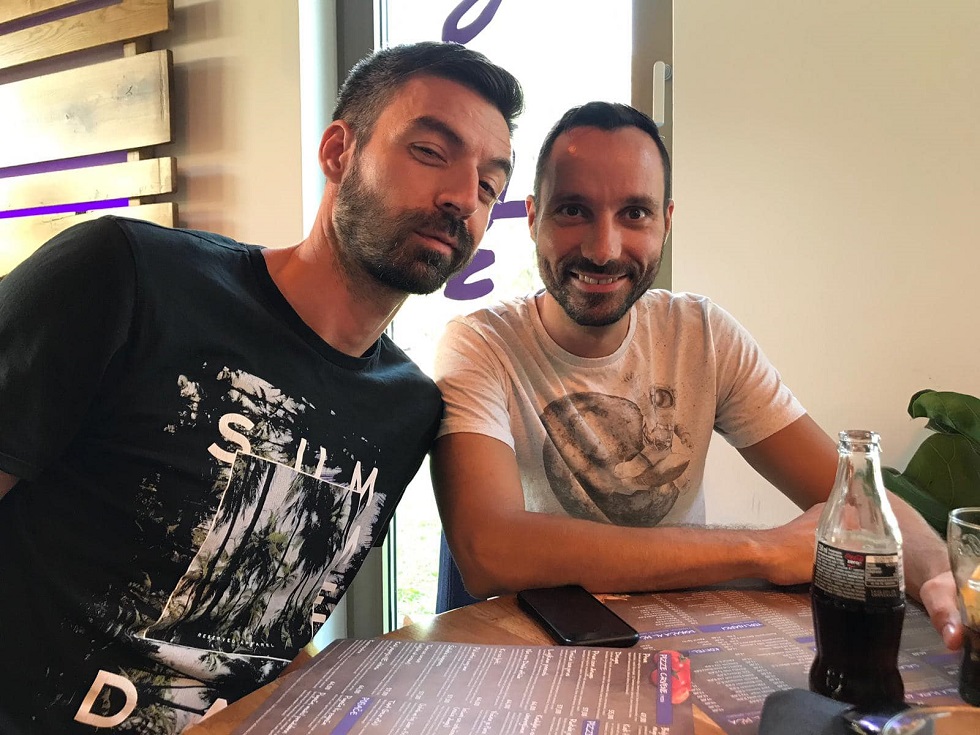
Applied to Become Foster Parents as Adoption Alternative
Therefore, Šegota applied with his life partner Mladen Kožić to the Zagreb branch of the Center for Social Welfare to become foster parents in the summer of 2017.
“Our application was very well received, especially by the psychologist and the social worker, who were particularly pleased when we announced that we were interested in fostering two or three children. Zagreb lacks foster families, especially those with the capability and desire to foster more than one child, which is why the centers are often forced to separate biological brothers and sisters,” he explained.
They both underwent an extensive psychological assessment process, during which they performed parenting skills tests, interviews, and discussed their motives for becoming foster care providers. A social history evaluation was also performed to assess their environment and family support network.
Center Rejects Foster Application Even Though Requirements Met
“We completely satisfied the requirements, received a positive assessment and everyone seemed pleased that this was happening. However, suddenly the center stopped contacting us. After the positive evaluation, we should have begun compulsory foster care training, which would have been followed by obtaining a foster care license. Suddenly, we could no longer get a response, and then in early December 2017, we were informed in writing that there were no legal prerequisites for initiating the licensing procedure because we are in a life partnership,” Šegota recounted.
They were very disappointed, he says, because after the initial response, they had hoped everything would be okay. After all, the Life Partnership Act clearly states that life partners are supposed to be legally on par with heterosexual spouses. As lawmakers have often pointed out, the only right that can be challenged is joint adoption of children - but not foster care, which is a profession and does not imply permanent childcare.
“We immediately submitted complaints to the Ministry of Demography about the center’s decision, but they rejected our appeal. We had no option but to institute legal proceedings,” they concluded.
Discrimination Lawsuit Initiated in July 2018
Their lawyer Bezbradica Jelavić initiated the lawsuit in July 2018. She noted that the center had begun the official evaluation of Šegota and Kožić in accordance with the Foster Care Act, but despite conducting a full procedure, which lasted four months, the center eventually rejected their request "because of a lack of legal presumptions.”
"Such a sudden detour in the evaluation process led us to the conclusion that there was a directive from above to treat these applicants differently. Considering the abrupt termination of the proceedings which were already underway, and even though the plaintiffs had met all the legal requirements, it's obvious that the Center for Social Welfare's treatment of the applicants was discriminatory due to their sexual orientation." The lawsuit further outlined the plaintiffs’ right to equal treatment and family life according to the law. National regulations, the constitution and international treaties guarantee the prohibition of discrimination as specified by the Convention for the Protection of Human Rights and Fundamental Freedoms.
"The plaintiffs state that they became aware that the Center for Social Welfare had abruptly discontinued another foster care evaluation involving life partners. This case, which had reached a later stage in the assessment, indicated that discrimination against same-sex couples exists within the organization," the lawsuit concludes, and cites several judgments from the European Court for Human Rights regarding similar cases, which were decided in favor of same-sex couples.
Well-Being and Interest of Children Should Come First
In the lawsuit, they also cautioned that the sole focus of the foster care profession should be the interest and well-being of children, not the sexual orientation of the foster parents, especially given the fact that the demand for foster parents is extremely high.
"Thus, by rejecting the request for foster care, the Center for Social Welfare in Zagreb violated not only the applicant's fundamental human rights, but also the right of a child or more children to quality accommodation and care, which they would receive in a stable family setting." According the center’s own evaluation, Šegota and Kožić demonstrated that they could provide this kind of environment, before their application was summarily rejected.
“The court fully accepted this argument in the lawsuit,” confirmed Bezbradica Jelavić, attorney for the couple.
Šegota and Kožić believe that the ministry and the foster care team at the Center for Social Welfare will respond quickly to the decision by the Zagreb Administrative Court. However, since the verdict has just been published and a written explanation is still pending, the Ministry of Demography has not yet been made aware of the details and could not comment or announce how it would react.
Excited to Finally Become Foster Parents
“We have patiently awaited this verdict. And we’re excited because we believe that we’ll be licensed as foster parents within the next few months and a child will arrive in our family. Or more children,” Šegota hopes.
He points out that this decision is completely in line with the foster care profession because, he emphasizes, foster parents do not have a right to a child, but every child has a right to a family.
"We hope that our family will be the right one for a child," he conveyed. Kožić adds that it is good that the decision has been redirected to the requirements of the profession because the rights of a child should not be the topic of daily political debate.
“The government, after adopting the new Foster Care Act, reiterated that they did not want to explicitly allow life partners to provide foster care because it contradicts their worldview, but at the same time they indicated that if the court rules otherwise, they will respect the court's decision. Now the court has provided children who don’t have a family with an opportunity for Santa Claus rather than a Grinch. Because it is the right of every child to grow up in a loving family, and not in an orphanage,” Kožić concludes.
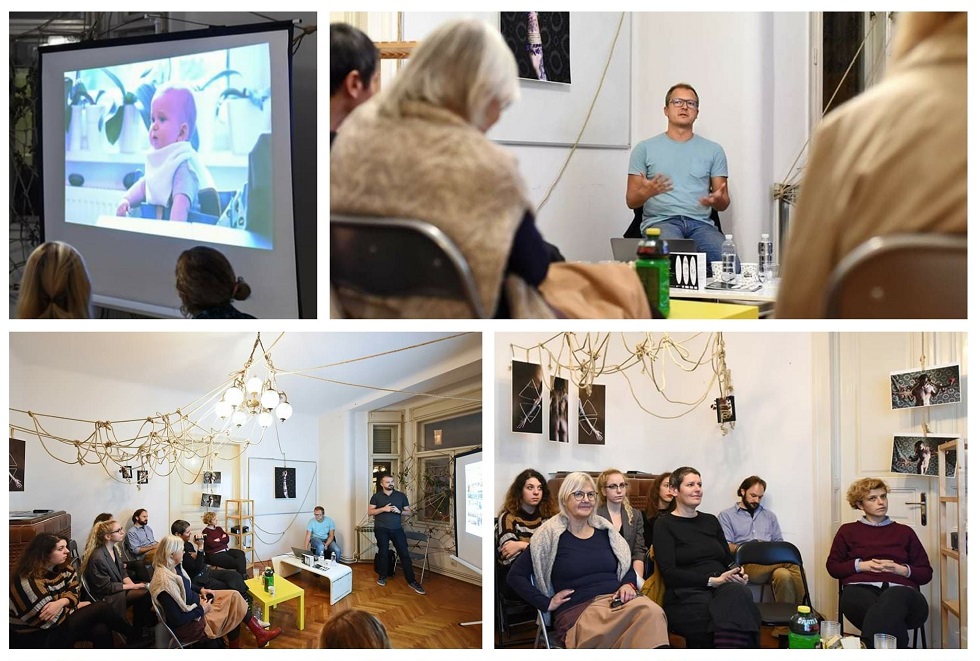
Founding Members of Croatia Based ‘Rainbow Families’
Šegota and Kožić are among the founders of the Croatia based group “Rainbow Families,” which is modeled after similar organizations worldwide, and brings together LGBTIQ couples and individuals who have children, want to have children, or would like to learn more about the rewards and challenges of raising a family.
Members of the organization first came together in 2011 in a psychosocial support group organized by the Zagreb Pride Association, led by psychologists Iskra Pejić and Matee Popov. After completing two support group cycles, the group members continued to meet and socialize as an informal citizens' initiative. Then, they established a forum and a website. In 2017, their association was officially registered. In 2018, they published an illustrated book titled "My Rainbow Family,” which was first book in Croatia to feature children with same-sex parents. In 2019, they organized the first international conference on rainbow families called “Our Children Are Fine.” Rainbow Families regularly organizes group activities and gatherings, which continue today.
For non-traditional families in Croatia, sharing experiences with others in similar circumstances can be very rewarding and fulfilling. In Rainbow Family meetings, LGBTIQ parents, and those planning parenthood, are given the opportunity to share their experiences and get to know each other.
Full Joint Adoption by Same-Sex Couples Legal in Seventeen European Countries
Full joint adoption by same-sex couples is legal in seventeen European countries: Andorra, Austria, Belgium, Denmark, Finland, France, Germany, Iceland, Ireland, Luxembourg, Malta, the Netherlands, Norway, Portugal, Spain, Sweden and the United Kingdom. Another five: Estonia, Italy, Slovenia, San Marino and Switzerland permit stepchild adoption in which the registered partner can adopt the biological and the adopted child of his or her partner in some cases. In Croatia, a life partner may become a partner-guardian over their partner's child, which is somewhat comparable to stepchild adoption. The new policy in Croatia follows that of Greece in which same-sex couples in a civil partnership may become foster, but not adoptive, parents.
Follow our Politics page for more information on LGBTIQ rights in Croatia.
Zagreb Pride March 2019 to be Held in Center of Zagreb on June 8
The Zagreb Pride March will be held this year with the slogan "Eighteen Proud Years" on Saturday, June 6th, and its route will be through the centre of the city. The organisers held a press conference today, announcing the organisational details of the gathering. They stressed that the Pride March is the longest-lasting political protest for human rights in Croatia.
The gathering of those supporting the LGBTIQ rights and their families will start at Roosevelt's Square (in front of the Mimara Museum) in Zagreb at 15:00, the organisers have said. The Zagreb Pride March will then briefly take over the centre of the city, on the following route: Republika Hrvatska Square (by the Croatian National Theatre), Frankopanska Street, Ilica, Bana Jelačić Square, Jurišićeva Street, Draškovićeva Street all the way to Ribnjak Park, where the main event with the speeches and a concert by the choir "Le Zbor" will be held. (And a party after that, of course)
?️?[RUTA] ?️?Povorka ponosa započinje okupljanjem u subotu, 08.06. u 15h ispred Mimare i prolazi središnjim zagrebačkim ulicama i trgovima sve do Ribnjaka, gdje će završiti javnim skupom i koncertom Le Zbor!
— Zagreb Pride (@zagrebpride) June 5, 2019
Sve i svi na Prajd, a poslije na Partycipaciju u klubu Boogaloo! ??? pic.twitter.com/7Fwo6xfBTh
Zagreb Pride reminds the public that they started the fight for the freedom they have today bravely back in 2002, comparing their first efforts to the Stonewall riots, which started the international LGBTIQ rights movement 50 years ago.
Their efforts in the last 18 proud years have shown that reality can be changed if there's unity and that the society we're trying to build has room for all proud and brave people who will embrace those who are being excluded, beaten and humiliated.
They also wanted to highlight that this is not just a phase, that LGBTIQ people are here, they are part of the fabric of society and they're not going anywhere. "This country is for all of us, and standing on the right side of history means being marginalised today, being a part of the resistance tomorrow, and living in freedom forever", Zagreb Pride said.
First Transgender March Held in Croatian Capital of Zagreb
Zagreb draws people from across the country and the wider region to march in the name of transgender rights.
The Republic of Croatia is known as a conservative country, and while there are people of all backgrounds, ethnicities and religious beliefs (or none whatsoever) living in Croatia, the dominant religion is Catholicism. Most people in Croatia identify as Catholic if asked, even if they don't actively practice the religion or attend church regularly, or at all.
Gay pride has become somewhat of a staple in some of Croatia's larger cities, including the capital of Zagreb, Split, and in the typically much less conservative Rijeka along the northern Adriatic coast. While gay pride parades generally pass by without many incidents, Croatia still has a long way to go before such parades are as accepted as they are in other European capitals such as London or Berlin.
What of those who are transgender, you might ask? As france24 writes on the 30th of March, 2019, Croatia hosted its very first transgender march yesterday, which attracted approximately 300 people from Croatia and the wider region to Zagreb to march in an attempt to draw attention to the discrimination they feel they face in what is a largely, but not entirely, conservative part of Europe.
Those marching were accompanied by special police as they marched through the streets of the capital on the warm, sunny spring day this weekend, blowing whistles and brandishing signs and banners attesting to their struggle within society.
The organisers of the Zagreb march spoke about the concerning rise of ''right-wing groups'', even going as far as to refer to such groups as ''fascists'' who seek to focus their ''attacks on marginalised people'' which they claim include women, migrants and transgender individuals. They claimed that the march encompassed not only trans rights but desired to draw attention to ''all forms of oppression,'' according to a statement from the organisers.
Since its accession to the European Union back in 2013, Croatia has seen the gradual liberalisation of gay rights, and homosexual couples have been perfectly free to register themselves as life partners, just like unmarried heterosexual couples, since the year 2014. That law afforded them the same rights which were already enjoyed by homosexual couples who are legally married, which include matters involving property, tax, health and social insurance, and various other things.
In spite of Croatia's numerous steps forward, which have picked up their pace quite significantly since the country's accession to the political-economic bloc, issues still remain for people seen as as marginalised, which includes both gay and transgender people.
A trans activist from the Slovenian capital of Ljubljana stated that solidarity is key, and that the march was an emotional one as it saw all of the people from across the region, which like to fight with each other at the best of times, coming together in Zagreb in the name of such an important matter.
Make sure to follow our dedicated lifestyle and politics pages for much more. If it's just the capital you're interested in, give Total Zagreb a follow.
Croatia Ranks 11th for Gay Rights in Europe
ILGA -Europe, the European Region of the International Lesbian, Gay, Bisexual, Trans and Intersex Association, has published their annual review for 2017.
Split Pride Announced for 2017
Split Pride returns this year on June 24, 2017.

